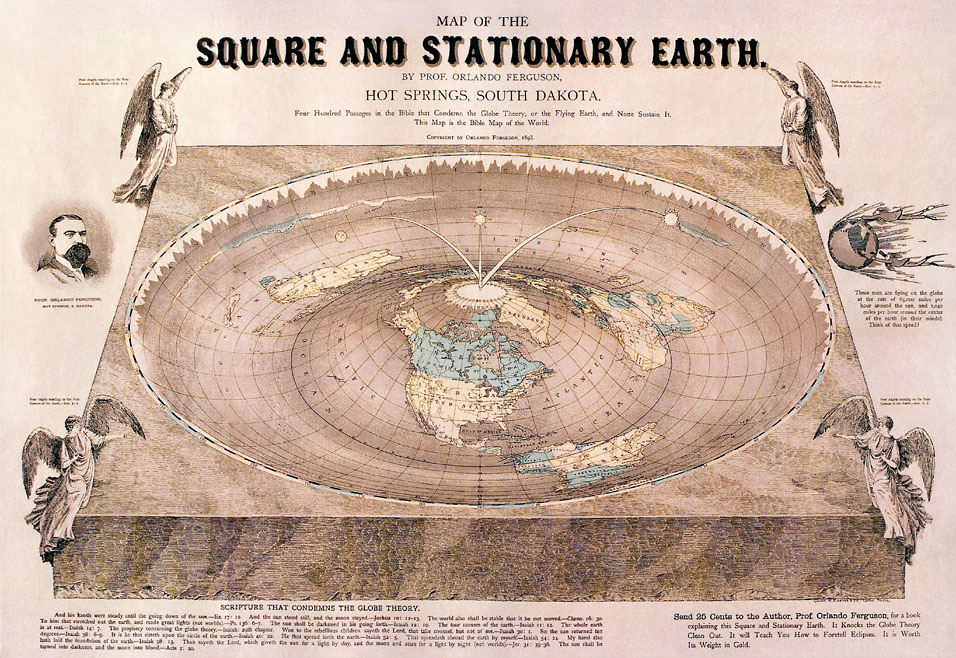Added 1 new A* page:While looking up the stuff for yesterday's article, about Kepler's Copernican heliocentric model of the solar system, and Brahe's "geo-heliocentrism," I came across this baby:

image by Orlando Ferguson (source)
That's Orlando Ferguson's 1893 diagram demonstrating how the Earth can be both the center of the universe, and square, as certain folks who take every colorful translated turn of phrase in the Christian Bible absolutely literally--and without researching it, generally--seem to want to believe, even in recent times--these are the modern geocentrists, and they have some fascinating ideas of how the universe works. Rather ironically, though, it appears that most of them now take the "out" provided by relativity--the whole thing about everything being a matter of your particular frame of reference, so from our Earthbound frame of reference, you could pseudo-scientifically say that relativity supports your claim that you're at the center of the universe. Clever!
The geocentric view, of course, has been around since at least the Greeks in the 6th century BC. Likewise, the idea that the Earth is flat goes back...well, probably to the first time some human bothered to think about what the thing they were walking on was shaped like in the big picture--but in terms of being written about, back to Homeric times in Greece (8th century BC), and quite far back in a multitude of other cultures as well. The Greeks, though, started figuring out that flat couldn't quite explain everything they were observing, and by the 1st century AD it appears that the spherical Earth was pretty much an accepted thing in Greek society.
This, along with a lot of other science from the ancient world, struggled to get passed along in the tumultuous upheavals of late antiquity, and, again, Christian writings seemed happy with the idea of a flat Earth, which thus began regaining ground in medieval Western culture. The round Earth idea never disappeared, though, and was in fact espoused in some of the most well-known learned tracts of the early Middle Ages--and it only became more widespread when the West was introduced to Islamic astronomy in the 11th century.
~~~~~
News has just broken that a US spy agency, the NRO (National Reconnaissance Office), has given two "spare space telescopes" to NASA; each has an eight-foot-wide primary mirror, plus a secondary mirror, making them potentially more powerful than the optics aboard the Hubble Space Telescope, which has a 7'10" mirror. While NASA thinks the earliest they could get the gift 'scopes refitted and launched would be 2020, a surprisingly long-sounding way off, that could work out quite nicely, as Hubble, already 22 years old, is expected to begin ailing by around that time, both due to equipment failures and to the gradual decay of its orbit--no further repair or boosting missions to extend the life of the telescope further are planned.
So two Hubble+ scopes to swing right in as replacements would be grand, especially since there really isn't a true successor to Hubble in the works; the James Webb Space Telescope is the official successor, but it's an infrared telescope, so even though it is due to have a whopping 21 foot mirror (consisting of carefully fitted smaller mirrors) at its planned launch date in 2018, it won't be able to return the type of spectacular visible light images that Hubble can. It's actually been downright puzzling to me that they *didn't* have an optical replacement in the works...but maybe somebody knew about these gift telescopes years ago? Well, who knows. Anyway, this is an excellent development for people like me who love spectacular visible light space photos!
|
